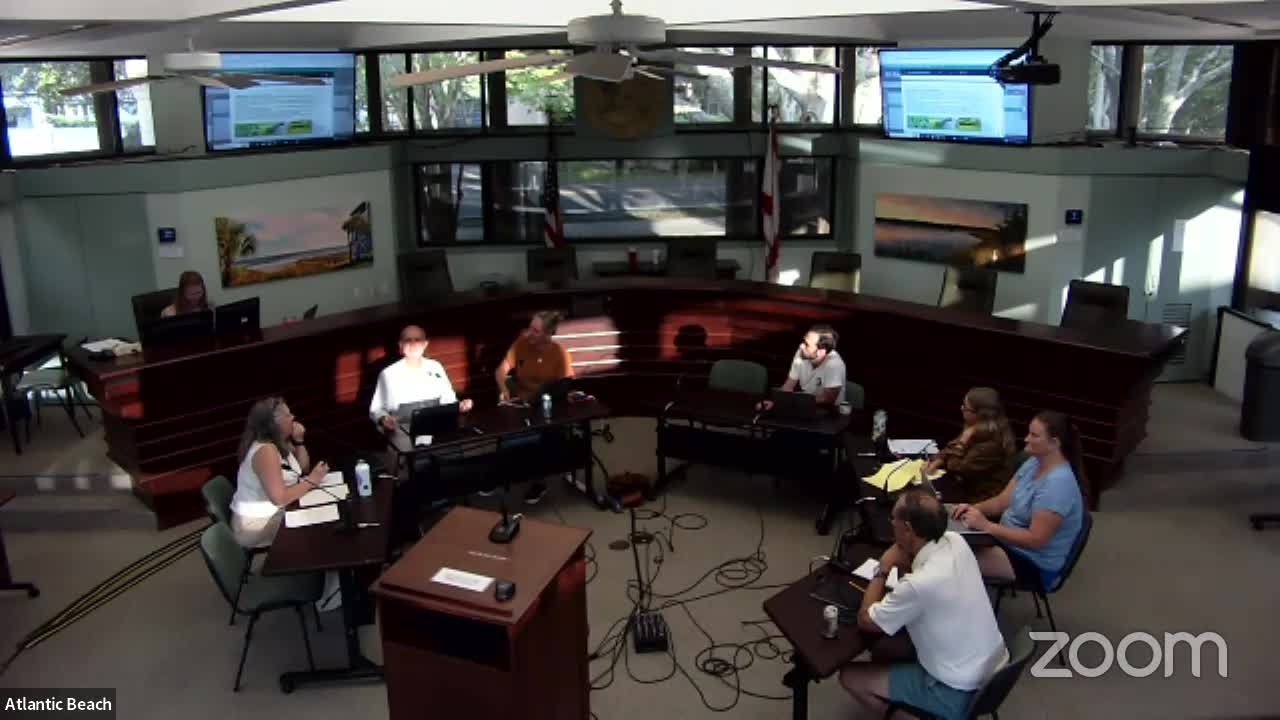Community debates urgent ban on harmful artificial turf
August 14, 2024 | City of Atlantic Beach, Duval County, Florida
This article was created by AI summarizing key points discussed. AI makes mistakes, so for full details and context, please refer to the video of the full meeting. Please report any errors so we can fix them. Report an error »

In a recent government meeting, officials engaged in a heated discussion regarding the use of artificial turf in Atlantic Beach, highlighting significant environmental concerns. The dialogue centered around the potential health risks associated with artificial turf, including carcinogens, water contamination, and its impact on local wildlife and biodiversity.
Several members expressed strong opposition to artificial turf, citing scientific evidence that suggests its installation and maintenance can lead to increased impervious surfaces, which could exacerbate environmental issues. One participant emphasized the need for a clear ban on artificial turf, arguing that allowing its use—even in limited circumstances—could undermine environmental protections and complicate negotiations.
The conversation also touched on the complexities of defining artificial turf as impervious, with some officials advocating for a more nuanced approach that would allow for limited use while still recognizing its environmental impact. However, others argued that any compromise could dilute the effectiveness of the regulations.
As the meeting progressed, it became clear that the commission would need to weigh the potential benefits of artificial turf against the documented environmental risks. The group agreed to revisit the topic in a future meeting, with a commitment to consider public input and further research on the matter. The outcome of this discussion could set a precedent for how Atlantic Beach addresses similar environmental challenges moving forward.
Several members expressed strong opposition to artificial turf, citing scientific evidence that suggests its installation and maintenance can lead to increased impervious surfaces, which could exacerbate environmental issues. One participant emphasized the need for a clear ban on artificial turf, arguing that allowing its use—even in limited circumstances—could undermine environmental protections and complicate negotiations.
The conversation also touched on the complexities of defining artificial turf as impervious, with some officials advocating for a more nuanced approach that would allow for limited use while still recognizing its environmental impact. However, others argued that any compromise could dilute the effectiveness of the regulations.
As the meeting progressed, it became clear that the commission would need to weigh the potential benefits of artificial turf against the documented environmental risks. The group agreed to revisit the topic in a future meeting, with a commitment to consider public input and further research on the matter. The outcome of this discussion could set a precedent for how Atlantic Beach addresses similar environmental challenges moving forward.
View full meeting
This article is based on a recent meeting—watch the full video and explore the complete transcript for deeper insights into the discussion.
View full meeting